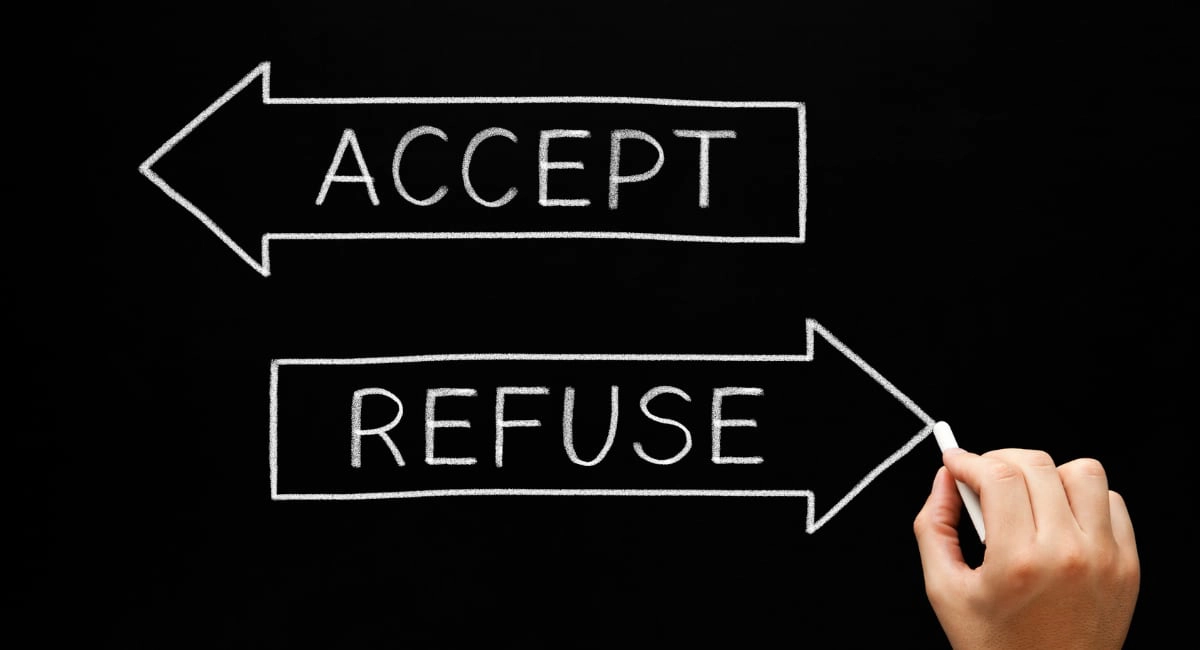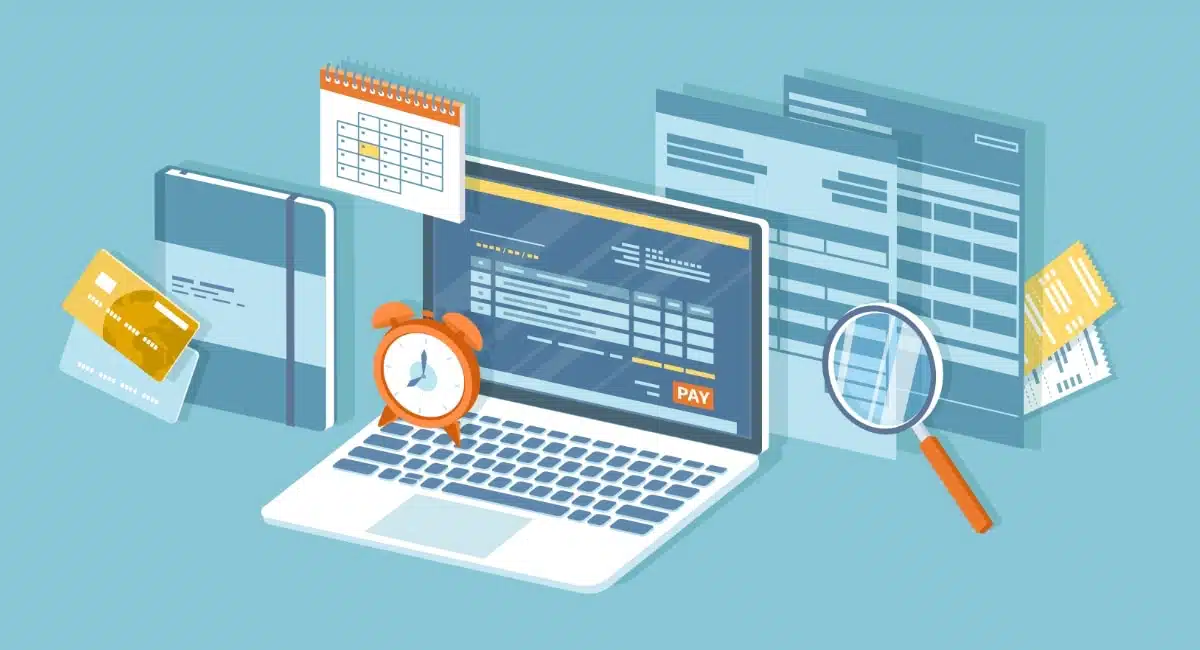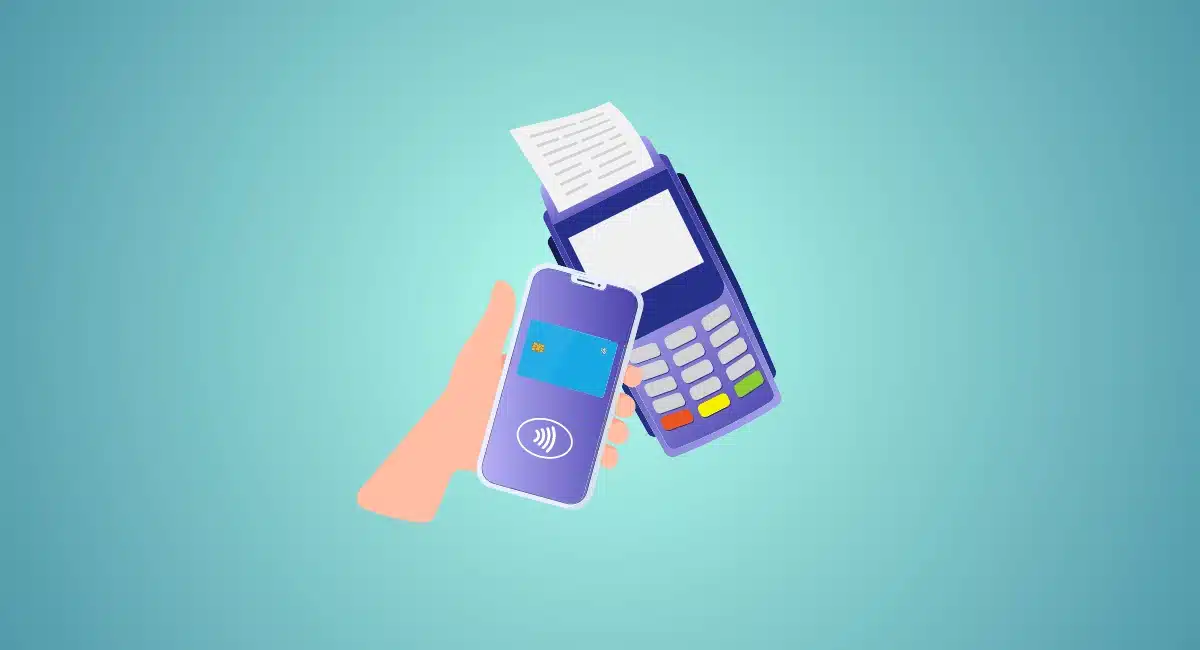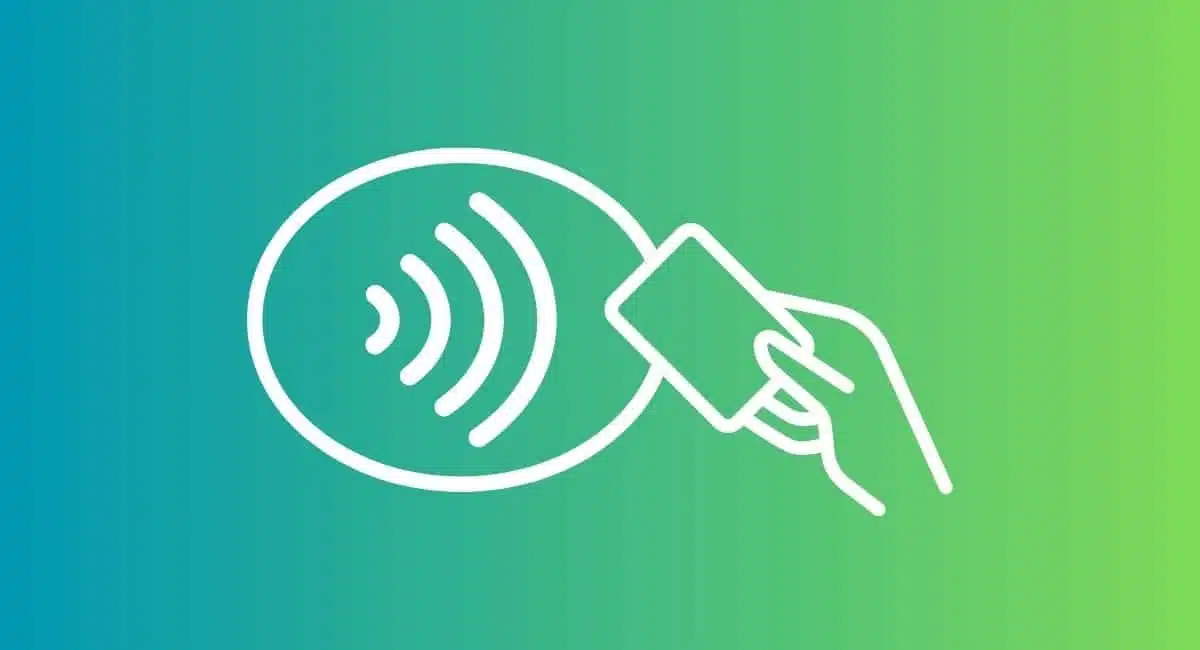Not all merchants can use the card terminals from Square, iZettle, SumUp or PayPal. This may come as a surprise, but the limitations are there to protect payment providers from losing money on high-risk transactions or getting involved in legal conundrums.
Most businesses are accepted by the aggregators we cover here, but some who get accepted may have their payments blocked later if it is detected they are likely trading within a prohibited area.
In user reviews, it’s sometimes hard to pick genuine service issues from merchants who should have been rejected at sign-up. For example, most won’t have their transactions put on hold for “security reasons”, but chances are that if you operate within a restricted business category, there is no guarantee your service provider will process sales to your account.
That is why it is important you check in advance of signing up for any new provider whether your business falls under one of these prohibited areas.
iZettle, PayPal Here, Square and SumUp restrict similar business types. Let’s identify what these are and why it is harder to get approval for them.
Reasons for limitations
The payment industry is complex, to say the least. Banks, card schemes, acquirers and others will each have their own rules to protect their profits and balance out potential risks involved in processing payments. As iZettle puts it: you should not receive payments from goods or services that are prohibited by law or card networks or “doubtful from a risk, complaint or reputational perspective”.
Card reader companies have a responsibility to not support industries that may be illegal, dubious, corrupt or outright hateful. But the boundaries between that and what’s acceptable within the context of a country or sector can be very blurry. What’s clear is that every provider will need to pass on the same country legislations and card network rules they operate under. Such rules may change frequently, so what’s imposed now may not be the case tomorrow.
The blurry lines mean you won’t necessarily be rejected by falling under a prohibited category. The only way to know for sure is to be upfront with your chosen provider and ask if you’re in the clear.
Businesses with restrictions
We’ve identified seven main clusters of restrictions. In each area, we compare what PayPal, iZettle, SumUp and Square say about those. Their policy wordings are different, but even when one of them omits a point, it doesn’t always mean they are okay accepting what the others haven’t omitted. They are guidelines at best, and the overarching rule is to limit merchants associated with activities that are:
High-risk
Illegal in either the merchant’s or customer’s country or jurisdiction
Restricted or controlled in some way
Morally problematic
Require licensing
Our recommendation is always to be honest to your provider and ask whether anything in your business could be subject to restrictions.
SumUp defines companies selling anything provided 7 or more days after the transaction as a “future business”, and they don’t allow that. This includes anything such as ticket sales for future concerts, prepaid phone cards or telecommunication services that are prepaid or recurring (although they do allow telecommunication franchises that sell hardware), travel/airlines, holiday bookings, etc. If these are used or take place within 7 days, they could be accepted.
iZettle prohibits businesses related to airline tickets and travel agencies. PayPal restricts selling “certain items before the seller has control or possession of the item” and requires preapproval for airlines and scheduled or non-scheduled jets, charters and air taxi operators.
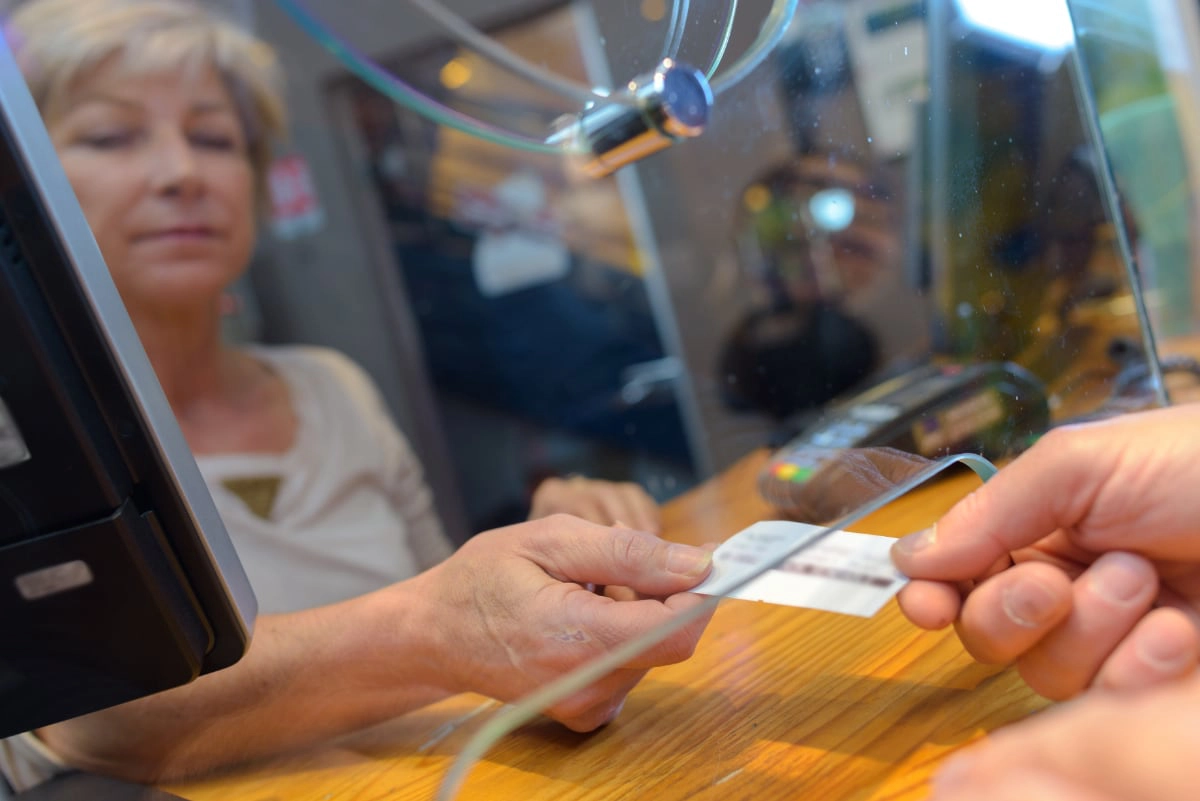
Selling tickets in advance of something? Your card reader company may not like that.
Square prohibits “unsolicited vendors that require immediate payment for the future provision of products or services (e.g. door-to-door salesmen)”, implying solicited vendors may be able to sell future things. Like SumUp, they prohibit prepaid phone cards and services.
In terms of travel, Square’s rules are more detailed: they restrict card rentals, construction equipment rentals, branded accommodation (so most likely hotels, B&Bs, and similar), steamships, air carriers and airlines – excluding “small charter airlines that (i) only use small propeller driven aircraft with fewer than 15 seats per aircraft and (ii) are not used in connection with corporate aviation programmes” and excluding on-board purchases.
Illegal or regulated goods and services
Anything that’s illegal, questionable in terms of legality, against card network policies, deceptive or legally restricted in any way will be subject to restrictions by payment facilitators. That said, some are trading legally in areas with, say, age restrictions, and may not be rejected despite falling under one of these categories.
Weapons, firearms and related accessories
All the payment facilitators restrict weapons, firearms and related services. PayPal also restricts certain knives regulated under applicable law.
Square restricts age-restricted items over the internet, mail order and telephone, which would include sales of knives. They go as far as to restrict automated fuel dispensers, presumably because of their peripheral role in explosives.
Drugs and paraphernalia
SumUp prohibits intoxicating substances and services related to this. PayPal and iZettle both prohibit sales of steroids and narcotics, while PayPal go as far as to restrict certain controlled substances or other products that present a risk to consumer safety.
All the providers prohibit sales of drug paraphernalia that may be used for illegal activities.
Pharmaceuticals
iZettle prohibits businesses that relate to prescription drugs, unless the seller has all applicable authorisations for the supply of such drugs and such supply is made in accordance with applicable laws and regulations. For card-not-present transactions, you also need approval for things relating to pharmaceuticals and pharmaceutical services including prescription and no-prescription drugs and chemicals, and nutraceuticals.
PayPal requires preapproval for prescription drugs or devices. Square is against “internet/mail order/telephone order pharmacies or pharmacy referral services, where fulfilment of medication is performed with an internet or telephone consultation, or a physical visit with a physician including re-importation of pharmaceuticals from foreign countries” .
Alcohol and tobacco
Alcohol and/or tobacco sales are restricted to some extent by all the providers. Specifically:
- SumUp restricts any intoxicating substances, which would include alcohol.
- Square only restricts alcohol and tobacco sales for internet, mail order and telephone merchants.
- iZettle restricts the “illegal sale of tobacco/alcohol products”. For card-not-present transactions, they restrict all alcohol products or things containing tobacco, including e-cigarette and vapes.
- PayPal restricts cigarettes and requires preapproval for alcoholic beverages, non-cigarette tobacco products and e-cigarettes.

iZettle and Square allow you to sell alcohol face to face with customers, as long as you adhere to the UK age restriction rules. PayPal requires preapproval for this.
File sharing, anonymity and copyright infringements
Copyright infringements are a general concern too. SumUp addresses it by prohibiting file sharing services. Furthermore:
- PayPal requires preapproval for file sharing services, and also restricts “items that infringe or violate any copyright, trademark, right of publicity or privacy or any other proprietary right under the laws of any jurisdiction”. This also includes transactions that “show the personal information of third parties in violation of applicable law”.
- iZettle restricts file hosting services including cyberlockers and “products or services which infringe upon copyright, trademarks and intellectual property rights”. They also restrict circumvention devices and anonymity services with the purpose of covering someone’s identity online.
Fraudulent, counterfeit or stolen products
PayPal restricts sales of “products or services identified by government agencies to have a high likelihood of being fraudulent” and also stolen goods, be it virtual, digital or others. iZettle restricts replica products and services providing counterfeit goods.
Things that encourage hate and crime
Square prohibits hate or harmful products. iZettle similarly doesn’t accept businesses that promote racism and hate or other extreme political views.
PayPal restricts the “promotion of hate, violence, racial or other forms of intolerance that is discriminatory or the financial exploitation of a crime”, and “items that encourage, promote, facilitate or instruct others to engage in illegal activity”.
They don’t allow involvement in things that are “considered obscene”, presumable in the moral context of the merchant’s country. They also require preapproval for anyone making money to provide access to newsgroups, which could be seen as a precaution to avoid involvement in hateful communities.
Every provider will need to pass on the same country legislations and card network rules they operate under. Such rules may change frequently, so what’s imposed now may not be the case tomorrow.
Adult services and products
All payment facilitators prohibit this, but some have a more lenient tone in their policies.
- SumUp restricts adult dating, escort services and sexual encounter firms. They even go as far as to restrict employment agencies, temporary help services and talent organisations, which could be a precaution to avoid being involved in adult services pretending to act as generic “work agencies”.
- iZettle restricts things relating to “live streams, dating (including sex dating), erotic dance or comparable services; relate to pornography, including child pornography, sex clubs, escort services, prostitution, magazines, videos or images with pornographic content and sex toys in cases where such products are the only products marketed”.
- Square restricts escort services and “adult entertainment oriented products or services in any medium, including internet, telephone or printed material”.
- PayPal restricts “certain sexually oriented materials or services”.
Misc illegal and dubious products and services
For card-not-present transactions, iZettle doesn’t allow you to sell things that are “illegal according to laws and legislation in the country where you target your sales and/or marketing” – and let’s be honest: you can generally expect this to be the case for any card reader provider. Moreover, iZettle restricts trades in human body parts, illegal electronic devices, and merchants involved in illegal wildlife trade. PayPal restricts anyone being involved in corruption or bribery.
Money, investments and financial services
Regardless of whether they are mentioned or not in some sections, iZettle and Square explicitly restrict “financial services” which could involve all of the below. SumUp and PayPal, on the other hand, are more specific with their financial restrictions. It’s interesting to see how they describe the areas so you can get an idea of where you stand a chance with your own business.
Currency-related
All the providers restrict types of currency exchanges, but there are slight differences in what kind of exchanges they mean.
SumUp restricts currency exchanges, virtual currency services, money transfers and forex, while iZettle restricts businesses relating to virtual currency “which can be converted/exchanged to real money”. Square prohibits wire transfer money orders and sales of foreign currency by non-financial institutions. PayPal prohibits businesses involving currency exchanges, and requires preapproval if you’re involved in forex.
Prepaid cards, vouchers, money orders and cheques
Similar to the “future business” restriction, the payment providers typically don’t accept businesses dealing with prepaid currency of any type. That said, shop vouchers and gift cards you create for customers could be accepted, so do ask the providers if you’re unsure.
Specifically: SumUp restricts prepaid services. iZettle restricts vouchers with a longer duration than 36 months. Square restricts sales of money orders, prepaid cards and cheques. PayPal requires preapproval for selling stored-value cards, and prohibits businesses associated with selling traveller’s cheques or money orders, and cheque-cashing businesses.
Debt-, credit- and loans-related
SumUp restricts “collection agencies, refinancing of debt/factoring, mortgage, brokers/reduction services/refinancing, payday loans” and “pawn shops (merchants that lend money in exchange for personal property such as jewellery etc.)”. Square restricts credit counselling, credit repair agencies, bankruptcy lawyers or collection agencies engaged in the collection of debt.
PayPal restricts “transactions to finance or refinance debts funded by a credit card”, layaway systems, and businesses involving certain credit repair, debt settlement services and credit transactions.

Under the card reader companies’ critical microscope, pawnshops are seen as high-risk.
Payments subject to refunds
If you’re involved in complicated payment workarounds that are not indicative of regular business trading, it represents a red flag for payment providers. SumUp and Square address this by prohibiting payments that are subject to refunds, namely: SumUp restricts “deposits and any type of payment that is subject to refund, regulated by the merchant’s terms and conditions”, while Square prohibits rebate-based businesses.
Stocks, trading and similar
Accepting payments in the stock market (and similar) is too high-risk for most payment providers: SumUp prohibits sales of stocks, securities, options and binary options. iZettle prohibits binary option trades. PayPal requires preapproval for merchants selling stocks, bonds, securities, options and futures.
Related to money processing and transmission
Square prohibits bill payment services and “financial institutions offering manual or automated cash disbursements”. They also prohibit (rather vaguely) “financial merchandise”, which could perhaps include card machines and POS equipment.
PayPal prohibits merchants that “are by payment processors to collect payments on behalf of merchants” and requires preapproval for escrow services and merchants acting as a money transmitter. iZettle prohibits aggregators.
Investment-related
SumUp doesn’t accept investor services, investment clubs or other investments, while Square doesn’t accept “use of transaction proceeds as investment in the future maturity or value of goods”.
PayPal prohibits offshore banking and businesses associated with purchases of annuities, and requires preapproval for an “investment interest in any entity or property”.
Things considered investments
Certain expensive goods that people may use as investment pieces are also prohibited by some providers.
Most (businesses) won’t have their transactions put on hold for “security reasons”, but chances are that if you operate within a restricted business area, there is no guarantee your service provider will process sales to your account.
For SumUp, this includes property sales, wholesalers of precious jewellery, metals and watches, auction houses, used or new motorised and electrical vehicles, and coin and stamp stores.
PayPal requires preapproval for dealers in precious metals, jewels and stones – so they appear more likely to accept it. iZettle doesn’t allow time-sharing, i.e. scheduled ownership of a property during certain times of the year. Square does not mention restrictions in any of these areas.
- SumUp restricts door-to-door sales, upselling and outbound telemarketers, “get rich quick” merchants and multi-level marketing/pyramid sales.
- iZettle prohibits Ponzi schemes, pyramid sales and any multi-level marketing programmes, and also businesses that are marketplaces.
- Square prohibits outbound and inbound telemarketers, unauthorised multi-level marketing businesses, upsell merchants, direct marketing or subscription offers or services, and high-risk products and services including telemarketing sales. Curiously, they prohibit service stations merchants, perhaps because it’s common for them to upsell.
- PayPal restricts matrix programmes, Ponzi or pyramid schemes, certain multi-level marketing programmes, and other “get rich quick” schemes.
Products and services with questionable outcomes
Certain business areas tend to be more dubious, deceptive or questionable in terms of efficacy. Payment companies identify those businesses as high-risk simply because they are more prone to customer complaints, lawsuits or payment disputes as a result of that.
Lottery, betting and gambling
SumUp, iZettle and Square prohibit lottery-, betting- and gambling-related sales, which could include bingo, Fantasy Football and casino services. However, SumUp does allow lottery kiosks/clubs as an exception.
PayPal is more specific with this. They prohibit lottery contracts and require preapproval for any gambling, gaming and other activity with an entry fee and prize – as long as the operator and customers are in a jurisdiction where these activities are permitted by law. This applies to casino games, horse and greyhound racing, sports betting, fantasy sports, lottery tickets, and other ventures facilitating games of skill, sweepstakes, or gambling (“whether or not legally defined as gambling”).

Fortune tellers and other mystical practices are often seen as scammers, so they’re high-risk for card reader companies.
Counselling, occult- and medical products and services, and more
SumUp doesn’t accept fortune telling, tarot card reading and mystics. iZettle similarly restricts clairvoyants and fortune tellers, while Square prohibits “occult materials”.
Furthermore, SumUp restricts non-licensed counselling including marriage and family counselling, debt and financial counselling, drug or alcohol abuse counselling and other personal counselling. If you’re a licensed counsellor with the proof to back it up, contact SumUp directly as you may be accepted. On the medical side, they restrict cosmetic surgery, male/female enhancers, weight loss or hair growth products, products to boost physical performance, and similar products.
Square also restricts infomercial sales, which have been associated with products that turn out to be too good to be true.
For SumUp, this includes protective or detective agencies and security services with e.g. armoured cards and guard dogs. They prohibit protection services, registration providers and services against identity, fraud, credit card and internet theft or fraud.
Square prohibits identity theft protection services, insurance companies and businesses providing credit protection.
PayPal restricts any business involving insurance activities.
Not-for-profits, clubs and organisations
It used to be the case that SumUp, iZettle and certain other providers accepted non-profits and private clubs, but rules have become stricter. iZettle, Square, SumUp and PayPal now all have some restrictions in this area, but they vary in nature. Again – they do make exceptions, so ask them to be sure. Their general rules are:
- SumUp restricts membership fees, political organisations, hunting clubs/activities and UK charities (they have started accepting overseas charities).
- iZettle restricts donations.
- Square restricts buyer or membership clubs and dues associated with those clubs.
- PayPal requires preapproval for collecting donations as a charity or non-profit organisation.
What to do if you’re a restricted business type
Just because your business is on this list, it doesn’t mean you haven’t got options. If you’re set on a provider, contact them to know if they would consider accepting your business, as you may just be in a grey zone allowing you to be accepted. It’s likely you’ll need to provide proof of what you do.
Alternatively, you can look for a merchant service provider that allows high-risk merchants, but expect to be charged premium rates if they do class you as high-risk. This is normal – they are only making up the for the potential losses or administrative dents you may incur with risky transactions.

